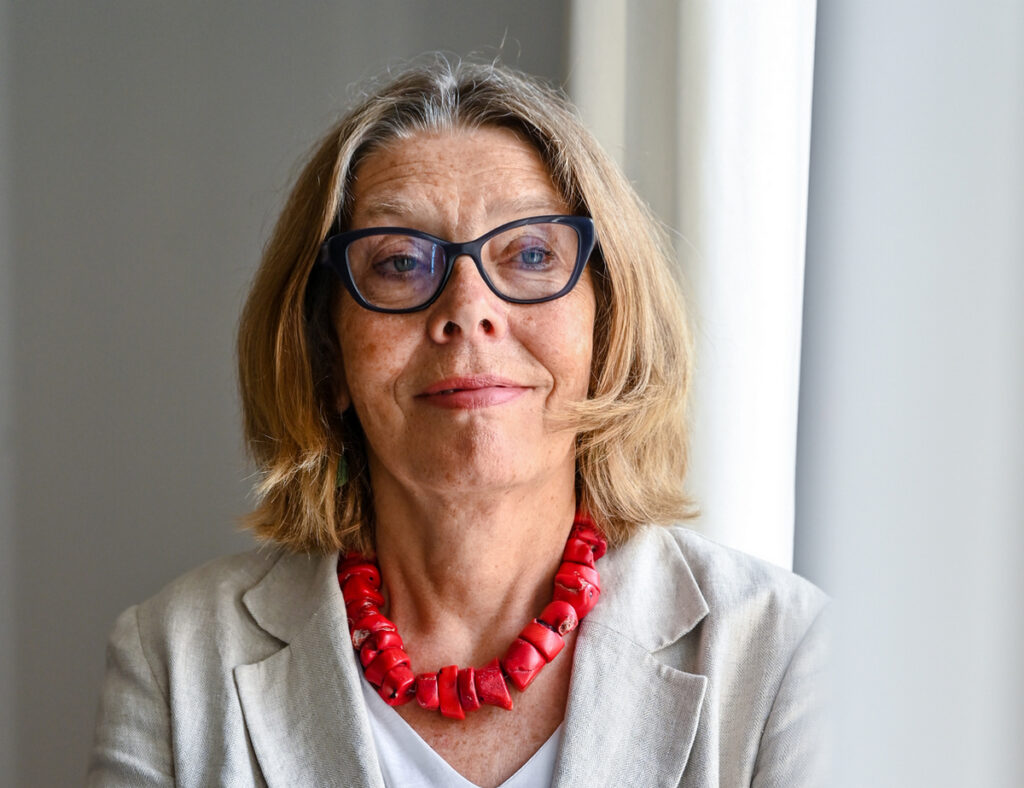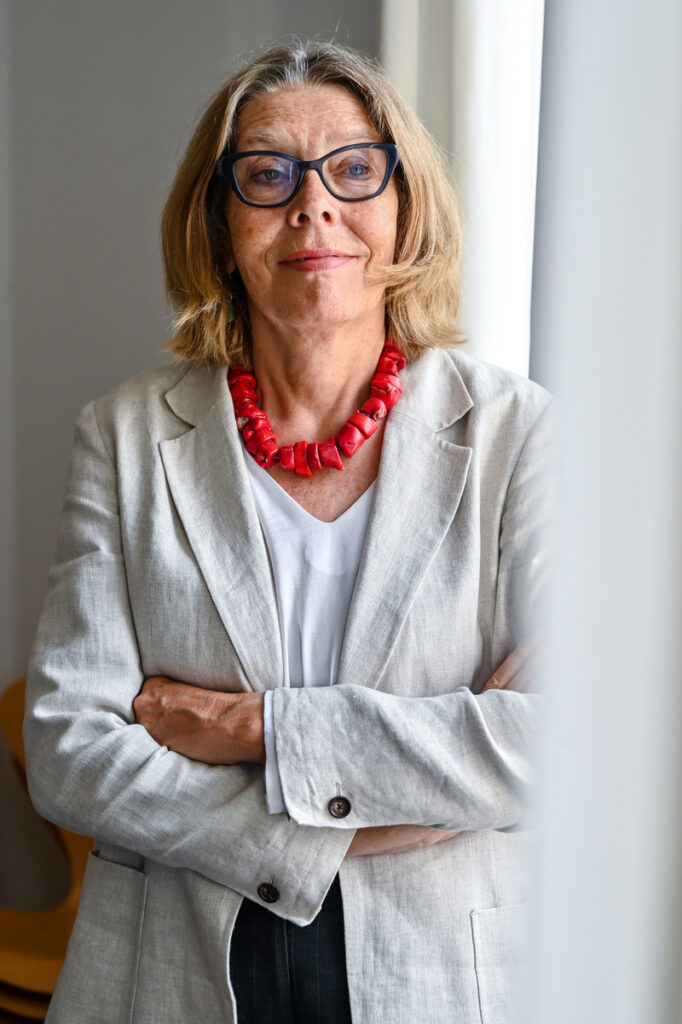EU Presidency priorities, enlargement as a geopolitical necessity, and Serbia’s path to membership

AMBASSADOR’S INTERVIEW
by Euronews Serbia
H.E. Pernille Dahler Kardel
Danish Ambassador to Serbia
On July 1st, Denmark assumed the presidency of the Council of the European Union, marking the eighth time a Scandinavian country has taken on this role. Over the next six months, what will Copenhagen’s priorities be, and how does Denmark view Serbia’s path toward EU integration? These topics were discussed with the Danish Ambassador to Serbia, Pernille Dahler Kardel, in an interview for Euronews Serbia conducted in cooperation with Diplomacy&Commerce magazine.
EU enlargement, including Ukraine, Moldova and the Western Balkans, is essential for a secure and united Europe
Your Excellency, thank you for taking the time to speak with us. Given that Denmark has taken over the EU Council presidency, what are its main priorities?
We assumed the presidency on July 1st, and it will last for the next six months. Our overarching goal is to be a strong Europe in a time of change, and that largely defines our focus areas. The current geopolitical environment strongly shapes our priorities. We’re focusing on two main areas. One is a secure Europe, which has many dimensions; it’s about building a Europe capable of defending itself.
We must be able to defend ourselves in the coming years. As you’ve seen, there’s renewed momentum to increase defence spending. But there are other aspects as well. For us, it’s crucial to emphasise that EU enlargement is a key part of a secure Europe, starting with Ukraine. Russia’s aggression against Ukraine was a wake-up call, and we must refocus on strengthening Europe. We believe that an expanded EU—including Ukraine, Moldova, and the Western Balkans, including Serbia—would make us stronger.
That’s why we’re very focused on this. We’re also focused on securing external borders and controlling illegal migration. So, security in a broader sense, not just the traditional concept of defence.
The second area is strengthening competitiveness in a green Europe. That means enabling European companies to compete globally. We’ve seen that bureaucracy and certain regulations hinder European companies from competing, and we need to address that. Green transition is a major priority for us. Denmark is a frontrunner in this area. We’ve set a goal to reduce emissions by 70% by 2030.
Ambitious climate goals are vital — Europe must arrive at COP30 with strong commitments
When that goal was set a few years ago, no one knew how to achieve it. But we rallied around it, and now we’re on track. I mention this for two reasons. First, it shows that when you set an ambitious goal and align efforts toward it, you increase the chances of success. Second, given the global pressure on climate policy, Europe needs to remain an ambitious actor in the green transition.
We’re currently reviewing climate targets for 2040. The European Commission has proposed a 90% reduction target. This is under negotiation, but we sincerely hope to lead the European delegation at COP30 in Brazil later this year with strong and ambitious climate goals. Europe must arrive in Brazil with robust climate commitments. Our efforts to combat climate change depend on whether Europe continues to pursue ambitious targets. So while we address immediate concerns, we must also stay focused on long-term issues like climate change.

This is Denmark’s eighth presidency of the EU Council. Given the current geopolitical and security context, would you say this is Denmark’s most challenging presidency?
And sometimes you forget how things were during previous presidencies. This one is certainly very challenging. Typically, as a Dane, you’re well prepared. We are well prepared this time too, but we don’t necessarily know the conditions we’ll be working under—the dynamics of the geopolitical environment, the transitions we’re witnessing, and the daily impacts.
Nor do we know what we’ll be able to achieve. We know what we want to accomplish. We don’t know how far we’ll get as the presiding country, unlike previous presidencies, where things were more predictable. So yes, it’s difficult, but that also makes it extremely important. We must stay focused and succeed. We’ll do everything we can to ensure that the EU is stronger after our presidency than it was before.
The Danish presidency program states that EU enlargement is a geopolitical necessity. In that light, what can Serbia, as a candidate country, expect?
I think one of the key developments is the renewed momentum around enlargement. That’s very important. Just a few years ago, we were hesitant about enlargement. But after Russia’s aggression against Ukraine, that hesitation is gone.
We now understand the importance of unity; that countries in this part of Europe belong in the EU. I hope one of the outcomes of our presidency will be to build that momentum around enlargement. So we’re no longer being asked whether we’re serious about enlargement. I’d like to see us move from questioning our seriousness to working together to solve problems.
How does Denmark, as the presiding country, view Serbia’s progress in EU integration so far?
Serbia has been a candidate country for many years and has made progress over time. We’ve just seen the latest European Commission report on the rule of law. There are challenges. I don’t think there’s anything unexpected in the report.
That’s why I believe it’s important to encourage Serbia to stay on course, complete its tasks, and become a member of the EU. The process is ongoing, and it’s important to see it through. It would be wonderful to see Serbia become an EU member.
One of the EU’s main priorities right now is strengthening governance. How can Denmark, as the presiding country, contribute to this task?
When you hold the presidency, you can set the agenda and steer discussions. We’ve strongly taken on the defence agenda, based on the Council conclusions from June. There’s still work to be done to ensure that in a few years, Europe will be capable of defending itself.
By setting the agenda, we can help ensure that it continues to be implemented. We’ve also decided to increase our defence spending to 5%. If you had proposed that a year or two ago, it wouldn’t have been accepted. But we made that decision. And that investment, to ensure we can defend ourselves together, is an important example to set.
Part of that is looking at our internal capabilities, making sure we have boots on the ground where needed. We’ve also decided it’s important for women to serve and have better conditions for service. To me, that’s a sign of what’s needed to advance equality.
Defence today isn’t just about physical strength; it involves many other factors. To solve these challenges, just like in any other area of society, diversity leads to better outcomes. That’s why we see it as a key aspect of promoting equality and ensuring the best possible results.